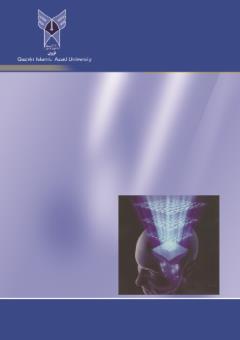A Method for Multi-text Summarization Based on Multi-Objective Optimization use Imperialist Competitive Algorithm
الموضوعات : Journal of Computer & RoboticsAmir Shahab Shahabi 1 , Mohammad Reza Kangavari 2 , Amir Masoud Rahmani 3
1 - Department of Computer Engineering, Science and Research Branch, Islamic Azad University,Tehran, Iran
2 - Department of Computer Engineering, Science and Industry University,Tehran, Iran
3 - Department of Computer Engineering, Science and Research Branch, Islamic Azad University,Tehran, Iran
الکلمات المفتاحية: Optimization, ICA Algorithm, Automatic Summarization, Single-text, Multi-text,
ملخص المقالة :
In this research, we discuss the methods that have been proposed so far to solve automatic summarization, in which both single-text and multi-text are summarized with emphasis on experimental methods and text extraction techniques. In multi-text summarization, retrieving redundant information that is readable and coherent and contains maximum information from the original text and minimum redundancy has made research in this field very important. An extraction approach based on several methods for identifying sentence similarities and a meta-heuristic optimization algorithm that has been modified and optimized for faster convergence is presented. In this algorithm, changes are made based on density detection through the probability distribution function to avoid being placed in local optimization and try to search more extensively for the response space. The experimental results obtained from the implementation of the algorithm show that the efficiency on criteria such as ROUGE and the accuracy of the proposed method is effectively increased.
[1] B. Mohammadi, “Extraction of Key Points from English Texts using Frame Network Ontology,” in Proceedings of the 17th Annual National Conference of the Iranian Computer Association, Tehran; 2011.
[2] H. Bashiri, M. Shameh, “Using Clustering and Summarizing Documents to Distributed Hidden Semantic Indexing,” in Proceedings of the Third Data Mining Conference, Tehran; 2009.
[3] C.-Y. Lin, G. Cao, J. Gao, J.-Y. Nie, “An information-theoretic approach to the automatic evaluation of summaries,” in Proceedings of HLT-NAACL‘06, pp 463-470, Morristown, NJ, USA; 2006.
[4] Ch. Jung, R. Datta, A. Segev, “Multi-document summarization using evolutionary multi-objective optimization, GECCO,” in Proceedings of the Genetic and Evolutionary Computation Conference Companion; 2017, pp. 31-32.
[5] N. Vanetika, M. Litvaka, E. Churkina, M. Lastb, “An Unsupervised Constrained Optimization Approach to Compressive Summarization,” Information Science; 2019, 509: 22-35.
[6] H. Mirshojaei, B. Masoomi, “Text Summarization Using Cuckoo Search Optimization Algorithm,” Journal of Computer & Robotics; 2015, 8(2): 19-24.
[7] A. Zamanifar, O. Kashefi, “AZOM: A Persian Structured Text Summarizer, NLDB 2011,” LNCS;2011, 6716, 234-37.
[8] A. Sh. Shahabi, M. R. Kangavari, “A Fuzzy Approach for Persian Text Segmentation Based on Semantic Similarity of Sentences,” Intelligent Information Processing III, Vol. 228 of the Series IFIP International Federation for Information Processing; 2006, pp. 411-420.
[9] D. Debnath, R. Das, P. Pakray, “Extractive single document summarization using multi-objective modified cat swarm optimization approach: ESDS-MCSO, Neural Computing, and Applications,” Neural Computing and Applications; 2021. https://doi.org/10.1007/s00521-021-06337-4.
[10] H. Mirshojaei, B. Masoomi, “Text Summarization Using Cuckoo Search Optimization Algorithm,” Journal of Computer & Robotics; 2015, 8(2): 19-24.
[11] J. Sanchez-Gomez, M. Vega-Rodriguez, Ch. Perez, “A decomposition-based multi-objective optimization approach for extractive multi-document text summarization,” Journal of Applied Soft Computing; 2020, 91: 106231.
[12] R. Alqaidi, W. Ghanem, A. Qaroush, "Extractive Multi-Document Arabic Text Summarization Using Evolutionary Multi-Objective Optimization With K-Medoid Clustering," IEEE; 2020, 8: 228206-24.
[13] A. Jangra, S. Saha, A. Jatowt, M. Hasanuzzaman, “Multi-Modal Supplementary-Complementary Summarization using Multi-Objective Optimization,” SIGIR '21: Proceedings of the 44th International ACM SIGIR Conference on Research and Development in Information; 2021, pp. 818–828. https://doi.org/10.1145/3404835.3462877
[14] P. Wilson, J. Jeba, “A developed framework for multi-document summarization using softmax regression and spider monkey optimization methods,” Journal of Soft Computing; 2022. https://doi.org/10.1007/s00500-021-06694-1
[15] D. R. Radev, K. McKweon, “Generating natural language summaries from multiple on-line sources,” Computational Linguistics; 1998, 24(3): 469-500.
[16] D. Radev, T. Allison, S. Blair-Goldensohn, J. Blitzer, A. Celebi, S. Dimitrov, et al., “MEAD – a platform for multidocument multilingual text summarization,” In Proceedings of LREC 2004, Lisbon, Portugal; 2004.
[17] M. Abel Fattah, F. Ren, “GA MR FFNN PNN and GMM based Models for Automatic Text Summarization,” Computer Speech, and Language; 2009, 23: 126-44.


